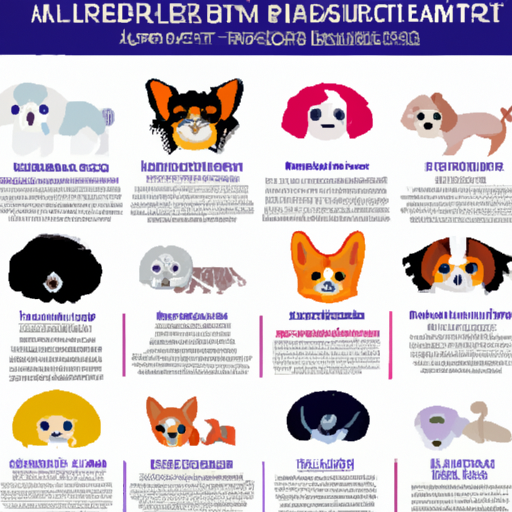For many, a home without a dog seems empty. Dogs bring joy, companionship, and unconditional love. Hypoallergenic small dogs make an excellent choice for people with allergies and limited living space. These dogs tend to shed less, producing fewer allergens compared to other breeds. However, it’s essential to remember that no breed is entirely hypoallergenic.
Table of Contents
- Understanding Hypoallergenic Dogs
- Top Hypoallergenic Small Dogs
- Caring for Hypoallergenic Small Dogs
- Frequently Asked Questions
Key Takeaways
- No dog breed is 100% hypoallergenic, but some breeds produce fewer allergens.
- Regular grooming can significantly reduce the allergens produced by your dog.
- Always spend time with the breed before bringing it home to see if it triggers your allergies.
Understanding Hypoallergenic Dogs
Hypoallergenic dogs are breeds that are less likely to cause an allergic reaction. They produce fewer allergens, which are proteins responsible for causing allergic reactions. These allergens are found in a dog’s skin cells, urine, and saliva.
It’s a common misconception that a dog’s fur is the culprit for allergies. However, the allergens cling to the fur and become airborne during shedding, causing reactions in allergy sufferers. That’s why hypoallergenic small dogs that shed less can be a better choice for those with allergies.
Top Hypoallergenic Small Dogs
-
Shih Tzu: Despite their long, flowing coats, Shih Tzus are considered hypoallergenic as they shed very little. They are friendly, outgoing, and make excellent family pets.
-
Bichon Frise: These small dogs have a curly coat that minimizes shedding. They are cheerful and sociable, making them great companions.
-
Maltese: Noted for their white, silky coats, Maltese dogs shed very little. They are lively, playful, and tend to get along well with other dogs.
-
Miniature Schnauzer: These dogs have a double coat that minimizes shedding. They are energetic and intelligent, making them easy to train.
-
Yorkshire Terrier: Despite their long, silky hair, Yorkies don’t shed much. They are confident, courageous, and are known for their lively and affectionate nature.
-
West Highland White Terrier: Also known as Westies, these dogs have a double coat that traps shedding hair. They are friendly, confident, and make excellent companions.
Caring for Hypoallergenic Small Dogs
Owning a hypoallergenic small dog requires regular grooming to minimize allergens. This includes regular baths with a hypoallergenic dog shampoo, brushing to remove dead skin cells, and regular cleaning of the dog’s bedding.
Regular visits to the vet are also essential to keep your dog healthy and happy. A healthy dog will produce fewer allergens. For more tips on caring for small dogs, check out this guide.
If you’re considering adopting a hypoallergenic small dog, it’s a good idea to spend some time with the breed before bringing it home. This will help you understand if the breed triggers your allergies.
Frequently Asked Questions
1. Are there completely hypoallergenic dogs?
No, there are no completely hypoallergenic dogs. However, some breeds are less likely to trigger allergies.
2. What causes dog allergies?
Dog allergies are caused by proteins found in a dog’s skin cells, urine, and saliva.
3. Can hypoallergenic dogs still cause allergies?
Yes, hypoallergenic dogs can still cause allergies, but the chances are significantly reduced.
4. What can I do to reduce allergens in my home?
Regular grooming of your dog, using a high-efficiency particulate air (HEPA) filter, and regular cleaning can reduce allergens in your home.
In conclusion, hypoallergenic small dogs can bring joy and companionship to those who suffer from allergies. Remember, though, it’s essential to spend time with the breed before bringing it home to ensure it’s the right fit for you and your family.
For more information on small dogs, you can visit One Top Dog or check out their articles on dog breeds and dog grooming.



